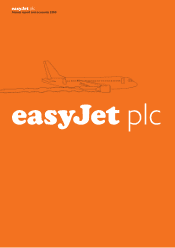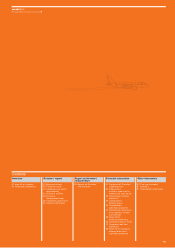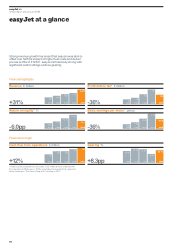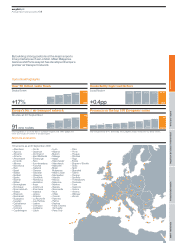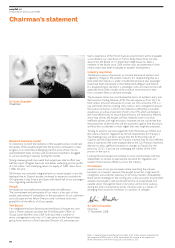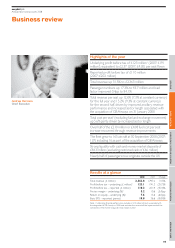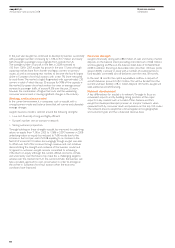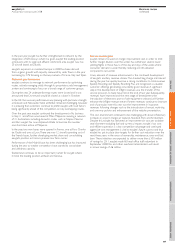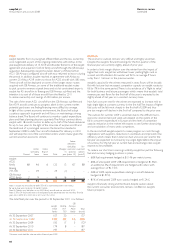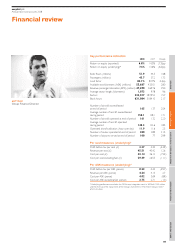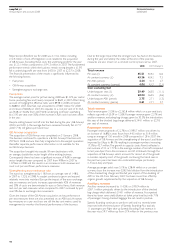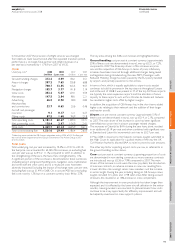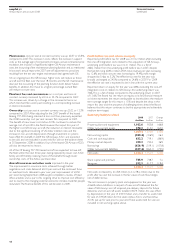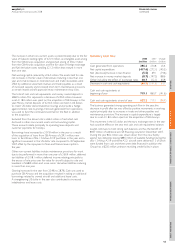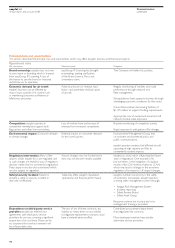EasyJet 2008 Annual Report Download - page 6
Download and view the complete annual report
Please find page 6 of the 2008 EasyJet annual report below. You can navigate through the pages in the report by either clicking on the pages listed below, or by using the keyword search tool below to find specific information within the annual report.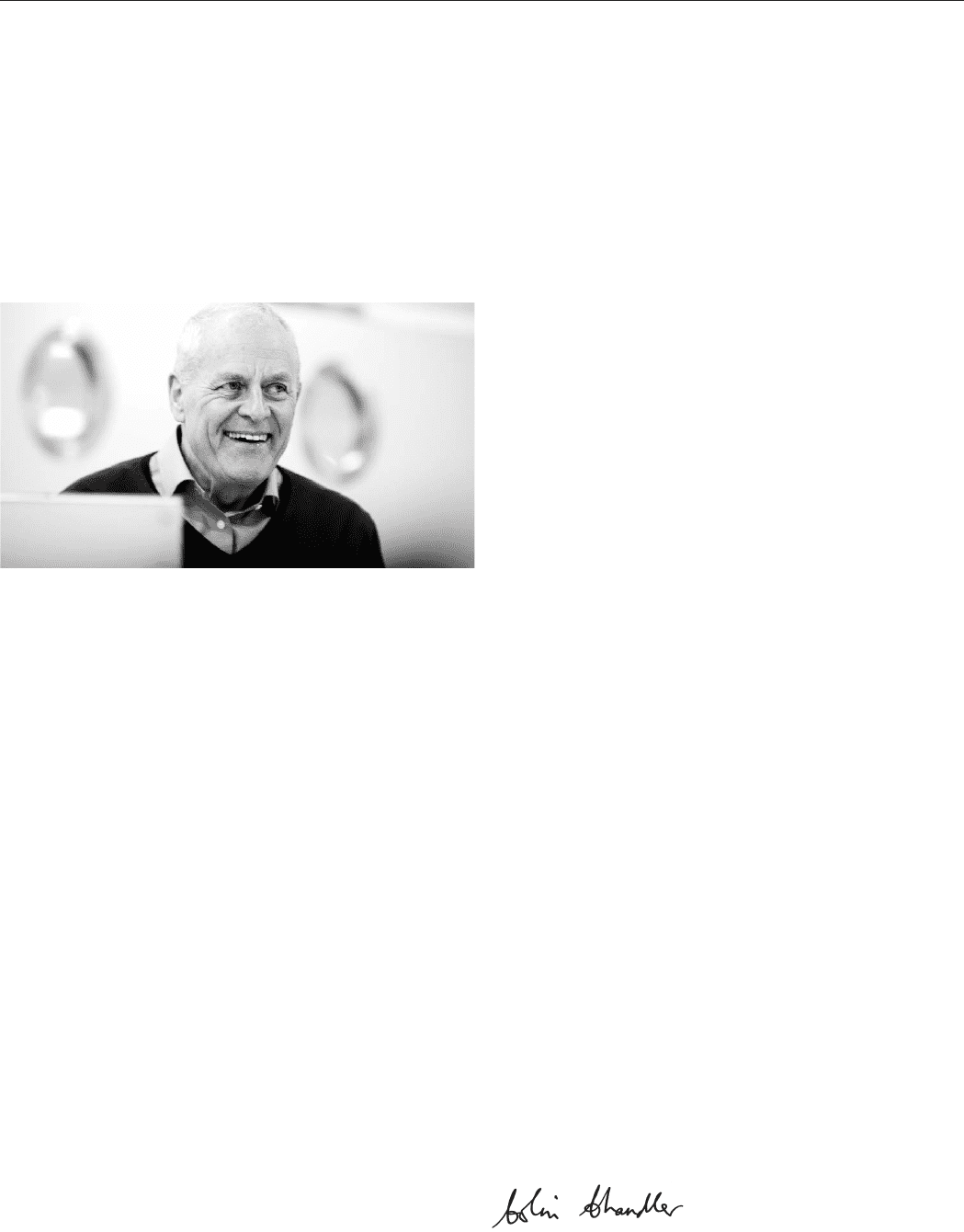
easyJet plc
Annual report and accounts 2008
04
Sven’s experience of the French business environment will be invaluable
as we develop our operations in France. Sadly, Dawn Airey will step
down from the Board on 31 December 2008. Dawn has been a
member of the Board since 2004 and her skills and experience of the
media sector have been invaluable to easyJet’s development.
Industry regulation
The Board is aware of pressures to increase the level of taxation and
regulatory charges in the aviation industry. It is disappointing that at a
time when the industry is under considerable pressure new passenger
taxes have been introduced in the Netherlands, Belgium and Ireland.
It is disappointing to see that it is passengers who are taxed not aircraft,
especially those older models which produce more emissions than
from a modern fleet, as we have at easyJet.
The European Union has now finalised the terms of aviation’s entry into
the Emissions Trading Scheme (ETS). This will require us, from 2012, to
hold carbon emission allowances to cover our CO2emissions. ETS is a
cap and trade scheme, covering many sectors, and is designed to ensure
that carbon emissions in the EU are reduced as efficiently as possible.
easyJet was an active proponent of entry into ETS, which we believe is
the most efficient way to ensure that emissions are reduced as efficient
short-haul airlines, like easyJet, will face relatively lower costs than
inefficient airlines with high emissions. However, we are concerned that
the proportion of permits that will be auctioned (against free allocation)
and thus the cost burden is much higher than was originally proposed.
Turning to airports, we have argued for both the break-up of BAA and
the review of airport regulation by the UK Department for Transport.
The challenge now will be to ensure that the forthcoming sale of
Gatwick and the Department for Transport review lead to more efficient
airport operations. We were disappointed by the Civil Aviation Authority
decision to allow significant increases to charges at Gatwick for the
period to 2012/13, and we are challenging the validity of the CAA
process in the courts.
Looking forward, easyJet will continue to work constructively with key
stakeholders to ensure an appropriate structure for regulation and
taxation that improves efficiency across the industry.
Conclusion
easyJet is now a truly pan European airline operating the premier
European air transport network. The easyJet brand has a high level of
recognition and customer advocacy in all its key markets. Undoubtedly,
there will be challenges in the coming year as the consumer environment
weakens but easyJet is well positioned and has an experienced and
capable senior management team. Our policy will be to be cautious
during this time of uncertainty and to conserve cash as a means of
emerging from economic recession in a position of strength.
Sir Colin Chandler
Chairman
17 November 2008
Chairman’s statement
Sir Colin Chandler
Chairman
Note 1: Underlying financial performance excludes £12.9 million of costs associated with
the integration of GB Airways in 2008 and excludes the reversal of the impairment
of the investment in The Airline Group of £10.6 million in 2007.
Resilient business model
It is testimony to both the resilience of the easyJet business model and
the quality of the easyJet people that the business continued to make
progress in an extremely challenging year. The price of fuel rose to
unprecedented levels and less well positioned competitors struggled
to survive resulting in capacity exiting the market.
Strong revenue growth has meant that easyJet was able to offset over
half the impact of higher fuel costs and deliver underlying pre tax profits
of £123 million1and underlying return on equity of 7.6%1, down from
13.6%1last year.
GB Airways was smoothly integrated and as a result easyJet is now the
leading airline at Gatwick. easyJet continued its expansion outside the
UK, especially in Italy, France and Spain with nearly half of our passengers
now originating outside the UK.
People
At easyJet we truly believe that people make the difference.
The commitment and enthusiasm of our crew is a key part of why
easyJet ranks ahead of competitors in the perceptions of our customers
across Europe and my fellow Directors and I continue to be very
grateful for all the efforts of all our people.
The Board
I am delighted that Sven Boinet joined the Board of easyJet this year.
Sven, a French national, has been the Chief Executive Officer of
Group Lucien Barrière since 2004. Sven also held a number of
senior management roles over a 15 year period at the French hotels
group, Accor and was a Non Executive Director of Lastminute.com.

